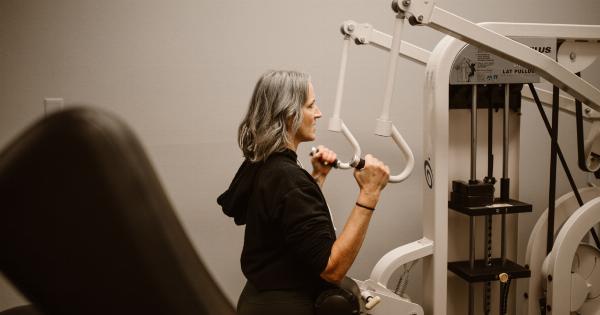Menopause is a natural biological process, marking the end of a woman’s reproductive years. It usually occurs between the ages of 45 and 55, with the average age being 51.
During this time, hormonal changes cause the menstrual cycle to stop, leading to a range of physical and emotional symptoms. Menopause can be a challenging time, but it doesn’t have to be unbearable. By incorporating a few simple tips and tricks, you can make menopause more manageable.
Eat a Healthy Diet
Your diet can have a significant impact on how you experience menopause. Eating a healthy, balanced diet can help alleviate many of the symptoms. Make sure you’re consuming enough fruits, veggies, whole grains, and lean protein.
Avoiding excessive caffeine, sugar, and alcohol can also help reduce hot flashes, irritability, and mood swings.
Exercise Regularly
Regular exercise can help with many of the physical and emotional symptoms of menopause. A combination of cardiovascular and strength training exercises can help build bone density, improve heart health, and reduce anxiety and depression.
Find an exercise routine that you enjoy, like dancing, walking outdoors or practicing yoga.
Manage Stress and Anxiety
Menopause can be a stressful time, but it’s essential to try to manage stress and anxiety. Stress can lead to insomnia and hot flashes and irritability.
Take regular breaks to do something relaxing you enjoy, like reading a book, take deep breaths, listen to music, or take a warm bath before bed. .
Sleep Well
Getting enough restful sleep every night can be a challenge during menopause. Hot flashes, night sweats, and insomnia can make it hard to get the rest you need.
Establishing a regular sleep routine can be helpful, including going to bed at the same time every night, avoiding caffeine in the evening, and turning off electronics before bedtime.
Keep a Positive Outlook
Menopause can be tough, but it’s essential to keep a positive outlook. Remember, it’s a natural life transition that every woman goes through, and you’re not alone. Keep a journal to help you track your feelings and emotions.
Talk to other women who are going through the same experience, find support groups in your community, or connect with online resources that can help you navigate the transition.
Talk to Your Doctor
It’s essential to talk to your doctor if you’re experiencing severe symptoms. Depending on your individual situation, your doctor may recommend hormone therapy, medications, or other treatments to help alleviate symptoms.
Don’t hesitate to advocate for yourself and ask for help if you need it.
Try Natural Remedies
Many women find relief from using natural remedies like herbal supplements, acupuncture, or massage therapy. However, every woman’s experience is unique, so it’s essential to talk to your doctor before trying any natural remedies.
They can help you determine what’s safe and effective for your individual situation.
Celebrate Your New Life
Even though menopause signifies the end of an era, it’s also the beginning of a new chapter in your life. Celebrate your new life by trying new things, exploring new hobbies, or traveling to new destinations.
Focus on your physical and emotional health, try new foods, make new friends, and embrace your newfound freedom.
Takeaway
Menopause is a natural part of life for every woman. By incorporating healthy habits into your daily routine, talking to your doctor, and staying positive, you can make menopause more manageable.
Remember to celebrate this new stage in your life and enjoy all the wonderful experiences it has to offer.




























